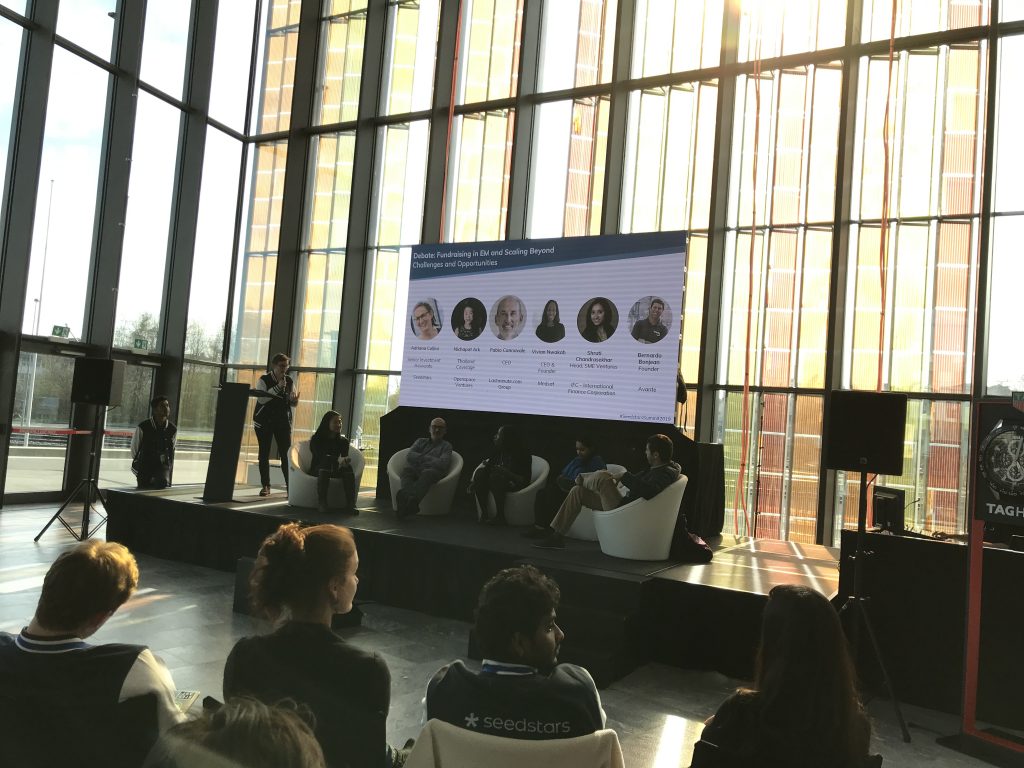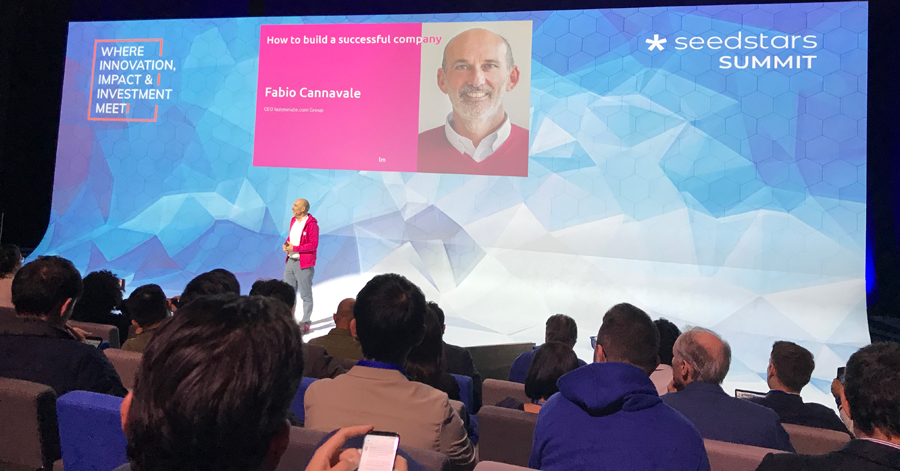The GSMA Ecosystem Accelerator team was invited to attend the sixth annual Private Investor Forum at the Seedstars Global Summit, in Lausanne on 4 and 5 April 2019. The event brought together over 1,000 people including start-ups, investors, mentors, mobile operators and other corporate companies from all over the world. The event also included industry-focused workshops and panel discussions, keynotes from experts and successful entrepreneurs from emerging markets and the announcement of the Seedstars World Winner 2019. Here are our takeaways.

Investment opportunities in emerging markets are growing and Seedstars have added $100 million to the pot!
To open the Investor Forum, Seedstars World Chief Investment Officer, Charlie Graham-Brown, announced a $100 million fund to invest in African tech start-ups in collaboration with Paris based First Growth Ventures. Seedstars is no stranger to investing in African start-ups. Since its inception in 2013, Seedstars has invested in ticket sizes of between $50,000 and $500,000 in 40 start-ups. The new fund is aimed at early stage investments from $250,000 to $5 million in 30 to 40 companies and current plans are set for investing to begin by the end of 2019.
During a private Investor Forum at the Summit, we heard over 80 pitches from start-ups from Asia, Sub Saharan Africa, MENA, CEE and Latam cementing the event’s theme, ‘Where Innovation, Impact & Investment meet!’. The event also provided an opportunity for over 350 one-to-one meetings to take place between investors and start-ups with $15 million promised in soft commitments.


Photo 1: investor panel; Photo 2 of Nichapat Ark – Open Space Ventures, Sasha Vieira – Standard Bank Group, Carla Walker – Bamboo Capital Partners, Shruti Chandrasekhar – IFC, Josie Middleton – GSMA
Some general advice and suggestions for success
A variety of common features and tips were shared, for start-ups working in an emerging market:
- Be the first in your market – start locally in one market, then aim to scale globally. One example is Urban Point, which first launched in Qatar at an event held by Vodafone Qatar.
- It’s important to reach out to the right investor – who is aligned with your start-ups core values. When you do reach out, be clear and precise.
- ‘As a start-up, people always tell you to run fast, but the ones who win the medal are the ones who are running in the right direction’. Marc Gruber, Professor for Entrepreneurship & Technology Commercialization at EPFL.
- Fabio Cannavale, founder of LastMinute.com succinctly summed up a motto that was prevalent throughout the summit – ‘Entrepreneurism is the real boost to development’.

Start-ups continue to use mobile technology to enable services in emerging markets
The bond between start-ups delivering a service and using mobile technology to facilitate this continues to strengthen. Amar Inamdar from KawiSafi Ventures, used d.light and BBOXX as two examples to highlight how mobile money allows goods to be paid for incrementally – ensuring payment is made but also that those in low-income communities have access to basic needs, such as electricity. For more examples of how start-ups are leveraging mobile money as a payment solution in the energy space, please read the Mobile for Development Utilities Annual Report.
Several start-ups at the Summit were using mobile technology. Here is a list of some we were lucky enough to meet:
- Bluewave is a Kenyan insurance tech start-up that offers users easy access to an array of insurance products;
- Cowtribe is a Ghanaian agritech start-up that enables farmers to order animal vaccines via USSD, text and telephone;
- Field Buzz* is a mobile software solution to manage last-mile distribution and operations efficiently in Bangladesh;
- Joonaak* is a Cambodian delivery service providing logistics for micro and small e-commerce businesses;
- Kubinga is a peer-to-peer ride sharing service that empowers Angolans with the freedom of mobility;
- Neh Thit (New Day)* based in Myanmar is a low-income jobs platform providing job matching, skills training and employer transparency;
- REMA is a collaborative medicine service dedicated to African doctors through a mobile application; and
- Teliman is the first Mali-based motorcycle-hailing start-up which is also using a mobile app to provide transport services across the capital city Bamako.
*Start-ups that are part of the round 2 portfolio of the GSMA Ecosystem Accelerator Innovation Fund.

From 8,000 start-ups to the final 12!
Throughout 2018, in total 8000 start-ups applied to the competition, leading to a selection of over 900 start-ups pitching at regional sessions hosted in over 80 countries culminating in over 80 start-ups attending the Global Summit. The 12 start-ups to make the final selection of the Global Winner were announced. The ultimate contestants included three African start-ups (CowTribe, Bluewave and Benefactors), four companies from Latin America (Blended, QuePlan, Doctor Online RebajaTusCuentas), three from the Middle East (Urban Point, YNMO, SmartCrowd) and two from Asia (Joonaak and Wobot).

… and the Global Winner is?
Blended, an Argentinian edtech start-up was crowned 2019 Seedstars Global Winner – walking away with up to $500,000 in equity investment. Blended is a mobile communication platform connecting schools with families.
Finally, and to bring this blog to a close, we would like to thank the team at Seedstars for offering us the opportunity to attend the Global Summit and participate in Friday’s healthtech workshop, with special thanks to Michael Weber, Charlie Graham-Brown, Rosie Keller, Frederik Orrenius, Regina Overchyk and Alisée de Tonnac.
The Ecosystem Accelerator programme is supported by the UK Department for International Development (DFID), the Australian Government, the GSMA and its members.


